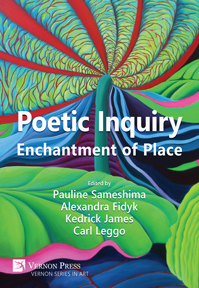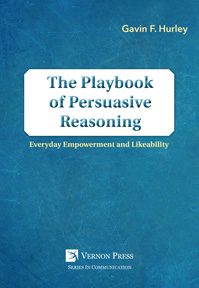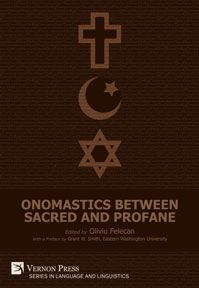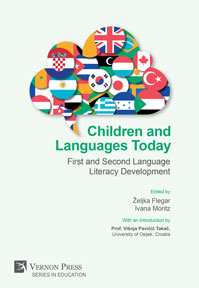Lazuri: An Endangered Language from the Black Sea
Züleyha Ünlü, Brian George Hewitt (Eds.)
by Belma Haznedar (Boğaziçi University, Turkey), Balkız Öztürk Başaran (Boğaziçi University, Turkey), Zaal Kikvidze (Tbilisi State University, Georgia), Levan Pachulia (Sokhumi State University, Georgia), Peri Yüksel (New Jersey City University, New Jersey, USA), Ömer Demirok (Boğaziçi University, Turkey), Züleyha Ünlü (Tokat Gaziosmanpasa University, Turkey), Gülşah Türk-Yiğitalp (Universitat Autònoma de Barcelona, Spain), Hanife Yaman (Tokat Gaziosmanpaşa University, Turkey), İsmail Avcı-Bucaklişi (Istanbul Laz Institute, Turkey), Irfan Cağatay Aleksiva (Laz Cultural Association, Istanbul, Turkey), Ömer Eren (University of Chicago), Fahrettin Şirin (Bielefeld University, Germany), K. David Harrison (Vin University, Hanoi, Vietnam)
Purchase this book
(click here to change currency)
'Lazuri: An Endangered Language of the Black Sea' is a unique source in terms of presenting a close examination of the Laz language from multiple perspectives. This volume, edited by Züleyha Ünlü, and Brian George Hewitt, examines the current status of the Laz language, Laz speakers’ perceptions of ethnolinguistic vitality, the significance of the Laz language for theoretical research in linguistics, the examination of Laz lexical data from historical documents, the linguistic variation of the Laz language, the use of a Laz alphabet in literary genres, contemporary responses to preserve the Laz language, and reflections from applied linguistics for the future of the Laz language. Focusing on the main features of the Laz language and its present situation in Turkey and in other regions as well as the attempts to revitalize Laz and Laz culture, this book will be the first scholarly publication on Laz as a South Caucasian language in terms of being a road-map for future studies.
List of Tables
List of Figures
Acknowledgement
Contributors
Introduction
[B.] George Hewitt
Emeritus Professor of Caucasian Languages (SOAS, London); Fellow of the British Academy; International Circassian Academy of Sciences, Jordan; Abkhazian Academy of Sciences
PREFACE Laz words, Laz worlds
K. David Harrison
Vin University, Hanoi, Vietnam
Chapter 1 The Current Status of Laz in Turkey
Belma Haznedar
Boğaziçi University, Turkey
İsmail Avcı-Bucaklişi
Istanbul Laz Institute, Turkey
Chapter 2 On the Significance of Laz for Theoretical Research in Linguistics
Ömer Demirok
Boğaziçi University, Turkey
Balkız Öztürk
Boğaziçi University, Turkey
Chapter 3 A Spotlight on the ‘Lazian’ Lexis: Evidence from a 19th-Century Lexicographic Resource
Zaal Kikvidze
Tbilisi State University, Georgia
Levan Pachulia
Sokhumi State University, Georgia
Chapter 4 Linguistic Variation and Complexity in Laz
Ömer Eren
University of Chicago
Chapter 5 Stories of Perseverance: Using the Lazuri Alboni for the Emergence of Literary Genres in a South Caucasian Endangered Language
Peri Yuksel
New Jersey City University, New Jersey, USA
Irfan Cağatay Aleksiva
Laz Cultural Association, Istanbul, Turkey
Chapter 6 Principles of Designing a New Dictionary Model for Endangered Languages: The Case of Laz
Fahrettin Şirin
Bielefeld University Germany
Hanife Yaman
Tokat Gaziosmanpaşa University Turkey
Chapter 7 Speaking Lazuri Beautifully: Discourses on Lazuri as an Endangered Language
Gülşah Türk-Yiğitalp
Universitat Autònoma de Barcelona, Spain
Chapter 8 An Applied Linguistics Perspective on the Preservation of the Laz Language
Züleyha Ünlü
Tokat Gaziosmanpaşa University, Turkey
Index
Züleyha Ünlü currently works as an Assistant Professor at the English Language and Literature Department of Tokat Gaziosmanpasa University in Turkey. Following her MS. Ed in TESOL at the University of Pennsylvania, USA, Dr. Ünlü has specialized in classroom feedback practices on academic writing as well as qualitative research, with a particular focus on Grounded Theory, during her Ph.D. at the University of Warwick in the UK. Her main research interests are Reflective Practice, Classroom Discourse in EAP and ELT settings, Professional and Academic Discourse, and Grounded Theory Methodology. Her learning background at the University of Pennsylvania, which focused on diversity, heritage languages, and minority languages in mainstream education, led her to work on endangered languages.
Brian George Hewitt holds a Ph.D. in Linguistics from Cambridge University. Lecturer in Linguistics at Hull University (1981-88), he was then transferred to SOAS (London University), where he remained until his retirement in 2015, having become Professor of Caucasian Languages in 1996. He was elected to the British Academy in 1997. First President of the (now defunct) Societas Caucasologica Europaea (1986-88 & 1988-90), he is an Honorary Member of the International Circassian Academy of Sciences (1997-) and of the Abkhazian Academy of Sciences (1997-). He has published extensively on Georgian and other Caucasian languages as well as on the Georgian-Abkhazian conflict.
language documentation, language revitalization, literature of endangered languages, attitudes,
language variation
See also
Bibliographic Information
Book Title
Lazuri: An Endangered Language from the Black Sea
ISBN
978-1-64889-221-9
Edition
1st
Number of pages
268
Physical size
236mm x 160mm

![Lazuri: An Endangered Language from the Black Sea [Hardback]](/file/19881/82335303f8c02e7d20be59c313b462a0/1677745965.jpg)






